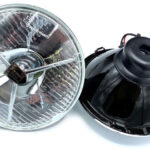Search Engine Optimisation (or SEO) is often an area of website management which can create confusion for a club; particularly as it is difficult to make sense of all the advice and information available on countless websites and books on the subject.
With this in mind, Kevin McGreevy, an experienced SEO expert, offers some practical advice for clubs wanting to improve their website’s online profile.
What is SEO?
SEO is an abbreviation for Search Engine Optimisation. If you are unsure of what that is, in a nutshell it means “optimising your website for search engines” or in practical terms “getting your website to the top of page 1 on a search engine”.
Search engines such as Google, Bing and Yahoo crawl millions of websites for words that are relevant to what their users have searched for. Therefore, in theory, if you can match the words being searched for, your website should appear.
In the SEO industry this is known as keywords. In the recent decade search engines have been developing and utilising extremely complex algorithms and now rate websites on their content, visits/hits, user experience and social outreach.
Content v. Keywords
Content is easily controlled by webmaster, relevant quality content containing the correct keywords. Content is still key as it is what search engines can guarantee is most relevant to their user’s search.
Content is key and keywords are content. There are two types of keywords – long tail and short tail. A short tail keyword is a small number of phrases that encompass a large target group, while long tail includes more phrases targeting a much more specific group.
Examples of short and long tail keywords
Search engines will find websites using the long tail keywords where relevant and when no options are available, or where websites do not have a good ranking, will choose websites with the short tail keywords to display relevant results.
If you are targeting a specific area, the language or more importantly the daily slang used can play a big part in your choice of keywords; best to incorporate both.
Keyword examples: “Car” is common in UK; “Vehicle” is common in USA. “Classic, Antique and Collectable” can mean the same thing; choose which is most commonly used. It could be worth mentioning all three terms.
A good tip for using keywords is to start with your club’s URL (the ‘www.’ bit) classic-cars.co.uk does not provide the user or search engines with an exact match for your website, classic-cars-club.co.uk does.
Website Description
This is definitely the most important part. The location where you are based should be included here. If you chose not to use the word “club” in your website name, include it in here too. i.e. Classic Cars Club Croydon
Your website description can appear many times after your page/post title when you use programs such as WordPress. So a page title tag would look like: 1969 Ford Capri | Classic Cars Club Croydon
In categories/sections; if your website includes a forum for its members, then call it forum, not “group chat” or “members rant”. Choose the most common term for sections of your website. Ensuring that the URL of the website is displayed i.e. classic-cars-club-croydon.co.uk/forum
Using keywords in this way will only have SEO benefits if your URL structure is defaulted correctly or manually changed for each page/post and not the default setting.
Example of a Page Title
In page/post titles the URL structure length comes into play here. Don’t write ten words if five will do. Use capital letters for the page/post title, but do not use capitals in the URL structure. Try not to repeat words within the URL structure.
Example:
Page/Post Headings
Break up your pages and articles into paragraphs, try and give headings to each paragraph, however do use appropriately, do not simply add a heading for the sake of it. Make the headings relevant to your keywords.
Example: Car Name History; Car Name Specifications; Car Name Events.
Webmasters will understand when I say, use the proper heading tags, i.e. <h1>. Search “header tags” online for more information. Having a heading in bold is not enough.
It is best practice to have the long tail keyword in the page/post title, heading and content. Slightly change the wording for the headings if you are able to provide the whole long tail keyword in the title. Make sure the long tail keyword exists in the content, if nowhere else.
It is not too late to change your websites URL structure, sometimes it is easier to change when you can see the various different pages/posts. If you have multiple makes and models, then it might be best to structure the makes into categories.
Visits/Hits
With a fan base/members already associated with the club, the webmaster simply needs to ensure their members are visiting regularly. How do you do that? Event updates section and club forum are two examples. If your website is popular, search engines will show your website.
When I talk to businesses with a client/member base, I ask the business: What happens outside of the website that can happen inside?
Examples:
- Clients like to phone up for an update or advice. I would suggest they create a client contact form / FAQ section.
- A business may provide training or room hire or other form of event booking. The client currently phones up to book such an event. I would suggest they add an online booking form.
The more you can drive your current members to the website, the easier it will be for new potential members to find you.
We will now take a look at how to improve a club website by paying attention to the content, the social outreach aspect of a website and linking strategies.
Clubs can help each other online by providing good links to relevant content on each other’s websites. It also makes a club website more entertaining for a visitor.
User Experience
The previous section examples (above) would bring about a better user experience. In theory it’s simple for a webmaster to better user experience, but the key is knowing how search engines rate user experience.
Search engines look to see if your website has photographs; video; social media platforms and whether you are updating the website and social media platforms.
That is only half the battle with the user experience rating. The rest comes with statistics that search engines track on your website. As a webmaster you can sign up for Google Analytics which will show all different stats about your website visitors.
How often they visited the website; if they revisited within 24 hours; how long they spent on the site; how many pages they browsed; which pages they browsed; which page they left the website on. Using algorithms the search engines use these stats to determine if the user enjoyed your website.
Social Outreach
This is quite new to the search engine/SEO world. Everyone is wanting to be social these days, via the internet. They have Twitter, Facebook and Instagram accounts, posting messages and photos to friends and family and other enthusiasts all around the world.
Search engines have jumped on the social bandwagon, completely changing how they rank websites. In the past it was “bad” SEO to link out of your website to another website, technically giving that website a “backlink”. People paid for these backlinks, however search engines do not want people to pay for backlinks, unless it’s through them, i.e. Adwords.
Search engines have changed their algorithm to embrace social sharing. So to link out to another club will now benefit your website, but only if the content is relevant. Link within your own website too, display similar articles to your visitor. Start with these, then include the external links.
Example:
Three is the key number, minimum three internal links and maximum three external links. Remember you do not want to send your visitor away from your website, it is simply a link that tells Google you are being social and providing Internet users with a never ending world of relevant information.
I cannot stress enough the word “relevant”. The external article must be relevant and contain quality content. Do not send an article to the homepage of a website or a completely irrelevant page. The search engines will track where the link leads to; check the content for relevance and score accordingly.
Flivver Online readers should use this external linking to their benefit. If twenty different car club websites are producing informative and quality content, then they should all be linking to each other’s articles from time to time.
Do not link to homepages, but to specific relevant articles and do not link to an article if that article is linking to your article, an immediate two way link will not be as effective.
In effect all the clubs will be showing Google that they have good outbound links and are receiving good inbound links. Google should appreciate the social sharing knowledge between the car clubs.
Disclaimer: website addresses quoted in the article are for illustartion purposes only and do not reflect real websites
Article originally published by ClubWorks [April 2016]
Main Image Credit: Pixabay, Pexels









